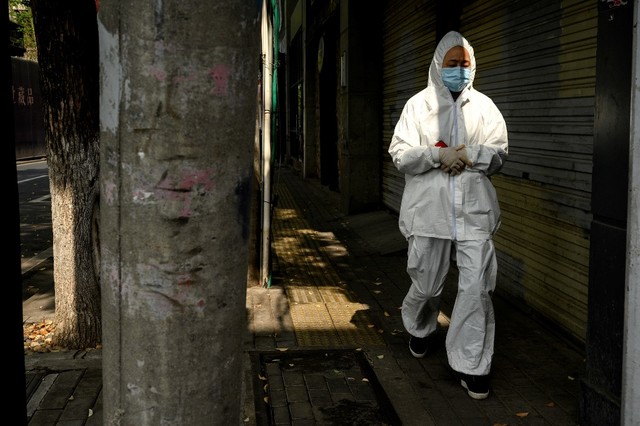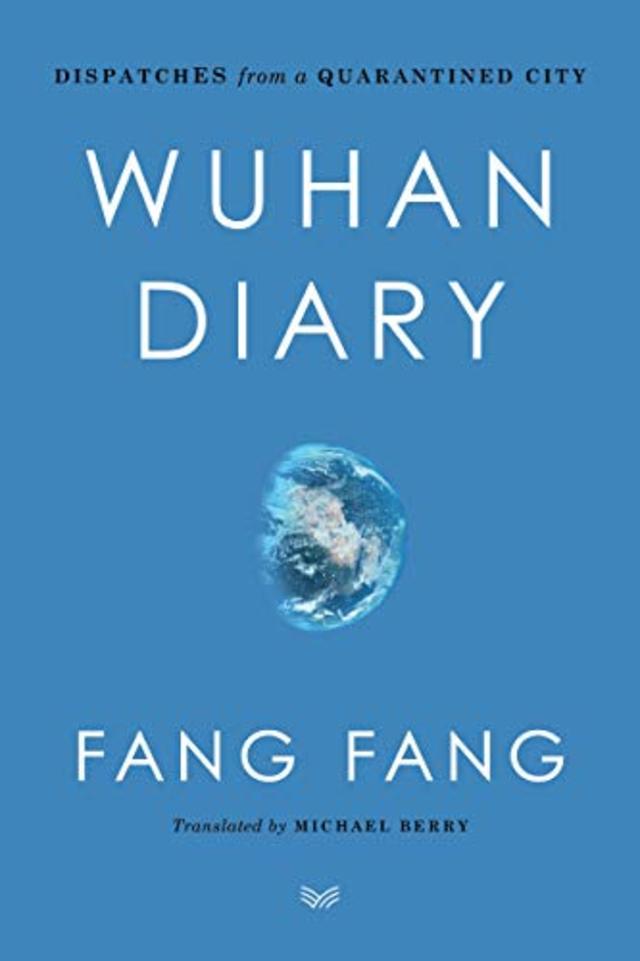'Wuhan Diary': Fighting and writing about the beautiful battle
'We could have learned from the Wuhan experience but we never did and instead magnified the problems with our own stupidity and negligence.'
by Frank Cimatu
Wuhan Diary by Fang Fang
Translated by Michael Berry
Harper Collins Publisher
300 pages

Last week, the English version of Wuhan Diary by Fang Fang was released internationally with translation by Michael Berry.
The original version, downloaded as a series of blogs by Fang Fang in Weibo, the main Chinese social media platform, had been controversial in mainland China.
Fang Fang is no Mocha Uson. At 65 years old, the writer was the president of the Writers Association of Hubei Province and won the Lu Xun Literary Prize in 2010 and the Chinese Literature Prize for Outstanding Writer. She witnessed China’s Great Leap Forward and the Cultural Revolution. Her novels, novellas, essays, and poems were reprinted in 100 different editions.
And she was from Wuhan, having finished her degree in Chinese Literature at Wuhan University.
“When I first logged on to my Sina Weibo account to write my initial diary entry, I certainly never imagined that there would be 59 more entries to follow; nor could I ever imagined that tens of millions of readers would be staying up late at night just waiting to read my next installment,” she wrote in the introduction.
Fang started her diary on January 25, two days after her city was locked down by authorities. Her Weibo account had been shut down after she criticized some young nationalists cussing in the streets. A literary journal suggested she started a series called “Wuhan Diary” or “Notes from a Quarantined City.” So she had to request to Weibo that her blog be uploaded.
In the following days, as she talked about the lack of face masks and government inaction, she would wonder if she would be shut down again and the censors rarely did.
She wrote every day. Her entries were like Chinese moral tales with poetic titles like “One speck of dust from an entire era may not seem like much, but when it falls on your head it’s like a mountain crashing on you” or “The arrival of a new life is the best hope that heaven can give us for the future.”
Fang Fang was in Wuhan for 60 years. She knows her way around. She had two brothers who are doctors.
On February 4, she wrote: “The question of how many people will end up being infected by this virus remains an extremely sensitive topic. Yesterday I posted something on Weibo that mentioned the number 100,000, which is a number most doctors have long been bracing for, even though none of them will say that publicly. Then there was actually one doctor who, while appealing for help, actually said that number out loud.”
But then of course, China would stick with 80,000 till the end.
She entitled her Feb. 7 post: “During this dark, heavy night, Li Wenliang will be our light” when the rest of the world didn’t even know about this whistleblower doctor.
She was already talking about remdesivir as early as February 6. Although she had long notes about the traditional medicines she had been taking and the sleeping tablets she had been forcing on herself nightly so she can rest.
She was hard on fellow writers who mouth the irrational optimism of the government. She said that the feeling of numbness is how we become our enemies. She talked about the common people in Wuhan. She wrote about the people she knew who died in their homes or the overcrowded hospitals. She mentioned the government memos distributed in homes and the videos unbearable to watch. This is like Dafoe’s Journal of a Plague Year” with chat groups and online memes.
Reading accounts about government responses reminds us of our own government’s actions. We could have learned from the Wuhan experience but we never did and instead magnified the problems with our own stupidity and negligence.
Fang Fang also had the poetic eye like mentioning about a mound of cellphones in front of the crematorium or the state of the mayor’s hat and the random acts of kindness of Wuhan strangers.
She often started her entries with the weather and when the topic becomes burdensome, she would segue about her books or old classics to give literary perspective.
“Tonight around dusk, a famous writer sent me a text,” she wrote on March 7. “He wrote something that I found to be quite profound: “Who would ever have imagined that a second catastrophe would befall the Chinese language itself?” Gratitude is a beautiful word, but I’m afraid it has been forever sullied. I wonder if moving forward, it will now become a “sensitive term” that we aren’t allowed to use.”
No wonder, tens of millions relied on her blog at that dark time in China. Especially those in Wuhan, who held on to her every word like a lifeline.
It would have been interesting if the publisher included the comments but then the more than 500 pages would have run to more than a thousand. And what wisdom would you get from trolls anyway?
When her entry is deleted, her supporters would screenshot them before they disappear, and eventually, they are included in this book.
Fang Fang ended her diary on March 24, the 62nd and final day of the Wuhan quarantine, as a thank you note to her friends and detractors. She also quoted her poem: "I have already fought the beautiful battle; I have already completed my course; And I have stood by every truth I believe in.” – Rappler.com